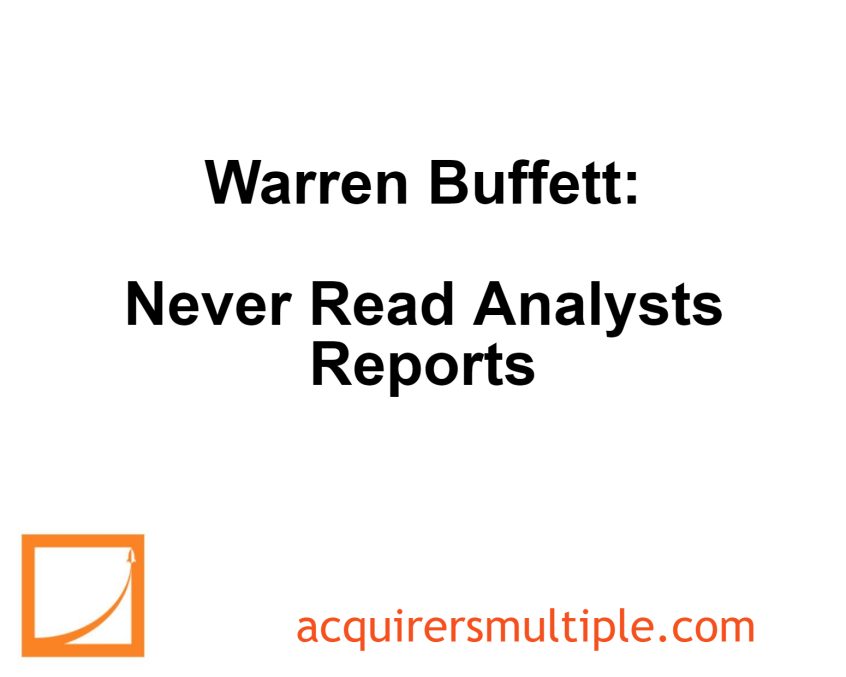During the 2003 Berkshire Annual Meeting, Warren Buffett explained why he never reads analysts reports. Here’s an excerpt from the meeting:
WARREN BUFFETT: You want to read lots of financial material as it comes along.
And actually, The New York Times has a far better business section than they had 25 years ago.
But you want to read Fortune, you know. You want to read lots of annual reports. You really want to have a database in your mind so that you can tell what kind of a business you’re looking at, in general, by looking at the figures.
It’s far overrated — we never look at any analyst reports. I mean I don’t think I’ve, you know, if I read one it was because the funny papers weren’t available, you know — (Laughter)
It just isn’t — I mean, it — I don’t understand why people do it.
But there’s a lot of data out there. And, you know, the beauty of it is — it’s really what makes the investment game great — is you don’t have to be right on everything.
You don’t have to be right on 20 percent of the companies in the world or 10 percent of the companies in the world or 5 percent. You only have to get one good idea every year or two.
So it’s not something — you know, when — I used to be very interested in horse handicapping, and the old story was — and I hope Bob Dwyer is still here — that, you know, you could beat a race but you can’t beat the races. And you can come up with a very profitable decision on a single company.
I would hate to be measured — if somebody gave me all 500 stocks in the S&P and I had to make some prediction about how they would behave relative to the market over the next couple years, I don’t know how I would do.
But maybe I can find one in there where I think I’m 9 in 10, 90 percent, in being right.
It’s an enormous advantage in stocks, is that you only have to be right on a very, very few things in your lifetime as long as you never make any big mistakes.
CHARLIE MUNGER: What’s interesting is that at least 90 percent of the professional investment management operations don’t think the way we do at all.
They just think, if they hire enough people, they can be better at determining whether Pfizer or Merck is going to do better over the next 20 years.
And they can do that, stock by stock, all through the 500 and have wide diversification. And at the end of 10 years they’ll be way ahead of other people, and, of course, they won’t. Very few people have this idea of searching for just a few opportunities.
For all the latest news and podcasts, join our free newsletter here.
Don’t forget to check out our FREE Large Cap 1000 – Stock Screener, here at The Acquirer’s Multiple:



